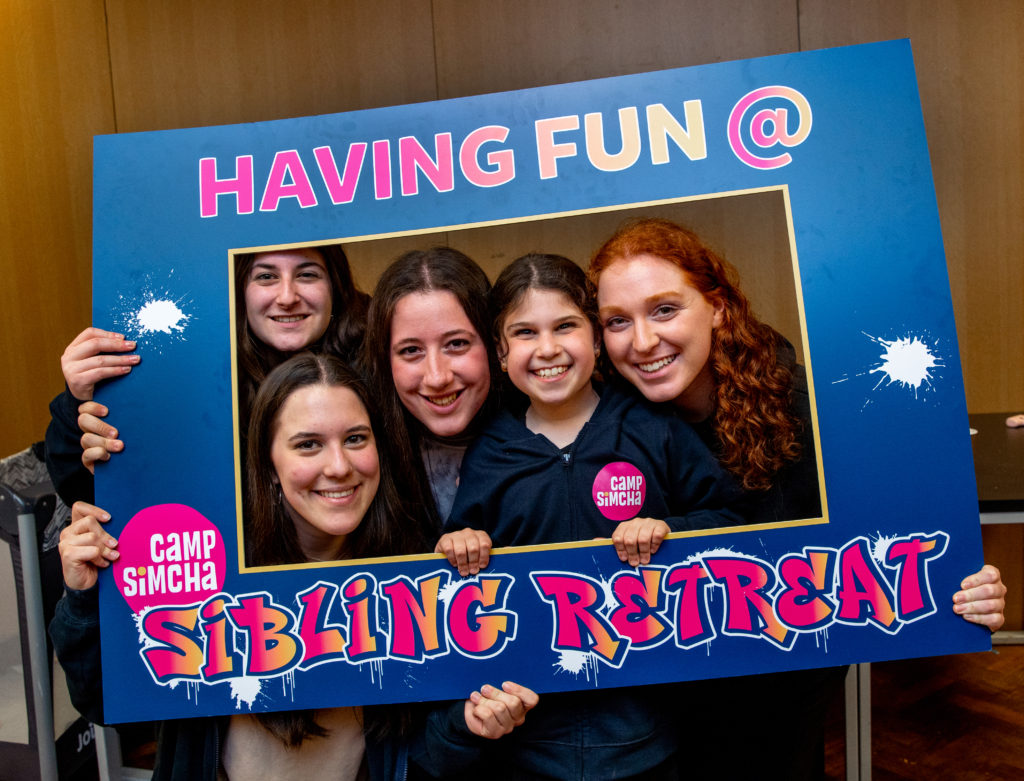


Siblings of seriously ill children supported by Camp Simcha enjoyed a break from the pressures of home on the charity’s annual sibling residential retreat.
The three-day residential at Green Park Centre in Aylesbury, gave the children aged eight to 12, an opportunity to be with others who understand their situation – enjoying a packed schedule of activities that were all about them.
The itinerary including archery, low ropes, wall climbing, abseiling, Happy Puzzle Company, arts and crafts and campfire circle time was designed to combine fun with team building, challenge and opportunities to share.
Ten-year-old Riva Fernandez from Manchester was attending for the first time. Her brother Otto, 20 months, has Alagille Syndrome which causes liver disease and affects his heart.
Their mother Mel said Riva ‘had the time of her life’.
“She absolutely loved all the activities and got on really well with the girl she shared a room with,” says Mrs Fernandez. “They are now looking forward to seeing each other again soon at the Camp Simcha residential family retreat.
“Riva really appreciated being with other children in her situation; she said they talked about their ill siblings and it was comforting to know that there are others who were going through similar things that she can now talk to.”
Retreat is just one aspect of the support Camp Simcha has in place for siblings, who are often the forgotten sufferers when a child is ill.
Claire Franklin, a Clinical Psychology doctoral trainee, working with Camp Simcha has recently undertaken some research looking at the impact on siblings of having a seriously ill brother or sister.
“Camp Simcha family liaison officers tell me that they frequently discuss the siblings with parents – and that they express worries about their children’s wellbeing, and that many feel guilty that they can’t give the siblings as much attention as they would like to,” explains Claire.
“Studies have found that having a sick sibling can increase the risk of poorer emotional health, disturbed sleep, falling behind at school, being bulled and a sense of self-censoring, among other issues.
“Siblings interviewed for some of these studies said they felt ignored a lot of the time and would have liked to have been able to talk about things so that their difficulties could be normalised and externalised.”
The positive news is that research has shown that the right interventions improved siblings’ and other family members’ self-esteem, behaviour, mood and quality of life.
“In another study, siblings themselves said they wanted to have a fun and supportive environment where they could meet others who were in a similar situation to them. They liked having a break from home, an opportunity to talk things through, and enjoy group activities that built their confidence.”
Camp Simcha Head of Services Daniel Gillis says this is exactly the kind of environment Sibling Retreat aims to create.
“We presently support over 700 siblings annually and, as with all our services, we are always looking at ways to maximise the positive impact of our interventions. We are using Claire’s research to continue to build on our sibling programme, which in addition to retreat, includes various sibling groups, outings, therapeutic arts sessions and dedicated volunteers.